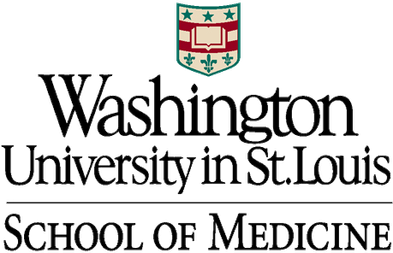Healthcare in St. Louis has a history of systemic racism, and these injustices have had profound, lasting impacts on the health and wellbeing of our community members.
The Pipeline to Compassionate Care (P2CC) program is a critical part of our work to dismantle the effects of systemic racism in healthcare and ensure that everyone — including and especially those from historically excluded communities — has access to quality, compassionate care.
About the Program
The P2CC program is designed to assist medical education institutions in St. Louis in embedding trauma-informed care, social and structural determinants of health (SSDOH), and identity exploration into their curriculum.
By doing so, we aim to produce a pipeline of healthcare providers who are not only skilled in their field, but also passionate about community medicine and committed to health equity.
“We began to attract these young leaders, expose them to community environments, undo some of the medical history and trauma and learning so that they could redo it in a way that was just and fair and centered the patient.”
— Bethany Johnson-Javois, former Integrated Health Network CEO
Educational Partnerships
We believe that effective change comes from collaboration. That’s why we work closely with educational institutions, community health centers (CHCs), and other community partners through electives, guest lectures, interprofessional experiences, and consulting with faculty to enhance their established courses.
Our key partners include Washington University School of Medicine, Saint Louis University School of Medicine, and St. Louis College of Pharmacy.



Understanding the Past, Shaping the Future
A short film from the Commonwealth Fund, “The Divide: Confronting Racism in American Health Care” explores the history of racism in healthcare in St. Louis, how it continues to influence health outcomes, and how our Pipeline to Compassionate Care program is working to dismantle those effects
Year-by-Year Overview
The Pipeline to Compassionate Care program is designed to educate St. Louis medical students about these issues, fostering a new generation of compassionate and effective care providers.
Rather than a single class or lecture, the P2CC program relies on a more robust, integrated approach that builds year after year to ensure students receive the training required to provide truly patient-centered care.
In the first year, P2CC introduces students to the concept of community medicine and implements basic trauma awareness trainings. It utilizes community member expertise to increase awareness of these concepts and important stakeholders within the St. Louis community. Additionally, students are given opportunities to collaborate interprofessionally.
During the second year, P2CC continues the trauma education and introduces the concept of narrative medicine into the curriculum. This encourages students to listen to patient stories as an integral component of patient care.
Students also gain exposure to value-add skills for use within community health center (CHC) sites. This helps begin to define a cohort of students with an interest in community medicine and to build interprofessional healthcare teams.
In the third year, P2CC creates opportunities for ongoing exposure to community health center (CHC) clinical sites. The program encourages discussions, processing, and reflection on social and structural determinants of health and personal identity work, and students continue the skill-based curriculum with advanced clinical skills.
In the fourth year, P2CC works to integrate community health centers and/or community medicine into clinical rotations. We also build narrative medicine practices (including reflection and processing) into clinical rotations and help students identify and apply to community medicine and primary care residencies.
The P2CC program, in partnership with Washington University School of Medicine and Saint Louis University School of Medicine, has exposed 680 medical students to these core concepts to date.
Our Future Goals
We aim to expand our impact by partnering with local residency programs. Our goal is to train preceptors within community health centers, thereby creating more opportunities for residencies within CHCs. We are also committed to supporting those within St. Louis residencies in their knowledge and continued exposure to community medicine.
Through the Pipeline to Compassionate Care program, we’re not just educating medical students; we are shaping the future of healthcare in St. Louis, ensuring that everyone has access to compassionate, high-quality care.

